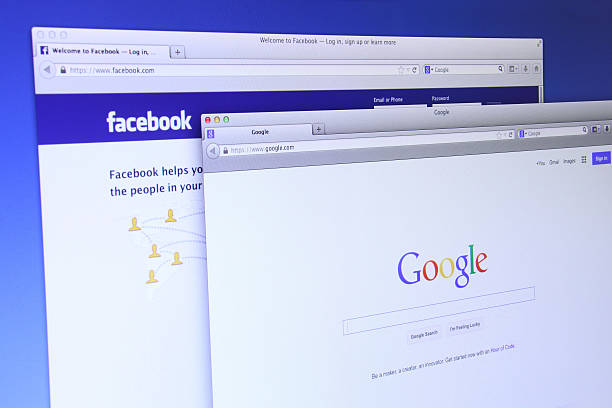Are you concerned about the growing power of Google and Facebook in the Australian media industry? The ACCC recently released their preliminary report into the impacts of their market power on news and advertising, revealing some concerning results.
With this in mind, you must read on to learn more about this development and what it could mean for your business.
ACCC releases preliminary report into Google, Facebook and Australian news and advertising
In response to increasing market power by the digital giants Google and Facebook, the Australian Competition and Consumer Commission (ACCC) released a preliminary report on July 20, 2018. The report aimed to assess Google’s and Facebook’s impact on news media organizations in Australia.
The ACCC identified three primary competition issues related to Google: • their predominance as a search engine; • the extent of data they collect, use and share; • the effects of third-party ad tech providers that rely on their market power.
It also highlighted that news content created by traditional media organizations represents an ever-decreasing fraction of content consumption despite consuming large portions of advertising dollars—a significant source of income for news media businesses. As a result, these organizations are going through financial hardship.
Furthermore, the report outlined numerous challenges that news media businesses face around advertising technology services for selling ad inventory. For example, both Google and Facebook often provide these services at nominal or no cost. Unfortunately, this unfairly disadvantages other independent companies from providing specialized ad tech services to these businesses, which would allow them to remediate some of their current predicaments.
The ACCC aims to address this issue through increasing transparency in digital markets, improving disclosure regarding data usage and strengthening existing regulatory framework governing such areas as merger control and consumer protection laws already existent in the country. They are now calling for public feedback before its final recommendation due in June 2019.
Google and Facebook’s Market Power: A Rising Tide of Challenges
Google and Facebook have rapidly grown to dominate the digital advertising market. As a result, they have unprecedented power over news media organizations, having past the tipping point in terms of concentration in the market, allowing them to create a duopoly over the digital advertising space. This has led to a rising tide of challenges for news media businesses. These two companies have tremendous control over where people get their news, what content is prioritized, and how new outlets are monetized.
Google and Facebook’s sheer size allow them to offer preferential treatment to content referred by them, providing an additional hurdle for already cash-strapped news media businesses trying to compete. As well as reducing their ability to make ad-revenue from their sites, they also make ads on news sites less effective. As the two companies absorb an increasing share of ad revenue through higher fees—the amount that revenues are split between Google/Facebook and advertisers can be 90% to 10% – traditional players find it harder and harder to stay financially viable as this trend continues.
Moreover, there is concern that Google/Facebook’s market dominance not only leads to a lack of competition in online advertising but could also lead unregulated monopolistic practices (e.g anti-competitive behavior such as predatory pricing i.e prices set below production cost) which would threaten press freedom across Europe since it would weaken news media organizations’ ability – already weakened by employees’ salary cuts during Covid 19 –to independently investigate current events and hold powerful organizations accountable for their actions.

The Impact on News Media Businesses: A Closer Look
Google and Facebook have become two of the most powerful players in the news ecosystem today. Their combined market power significantly impacts how information is produced, distributed, and consumed across our society. As a result, many news media businesses have had to adapt their operations as they strive to stay competitive with these corporate behemoths. In this section, we will explore how Google and Facebook’s market power affects news media businesses.
First and foremost, both companies have affected how news stories and content are discovered online. Both companies have algorithms determining what stories pop up in user’s online searches or notifications. As a result, many news outlets compete against one another for attention to keep their stories relevant on these platforms. Furthermore, Google and Facebook’s algorithms can privilege certain types of content over others if they are better able to attract more readers or viewers; this often includes more sensationalized stories that may not be faithful to all facts or reliable evidence presented in a journalistic context.
In addition, Google and Facebook’s control over distribution means that news outlets rely heavily on their services for audience growth – making them even more dependent on the two companies for success. This dependence has given them an increased power over how much money publishers earn from hosting their content on their respective platforms; they can also control where ad revenue goes by using automated systems prioritizing particular kinds of ads over others. Finally, it is important to note that any changes made by either company may immediately impact any given news business’ bottom line – leaving some feeling completely out of control over the fate of their operations at any given time.
The Role of Advertising Revenues: A Necessary Source of Income
Advertising revenues account for an important component of media businesses’ income, especially in the case of news media. Without them, it would be difficult for print and digital publishers to remain profitable. Unfortunately, the presence of tech conglomerates such as Google and Facebook poses serious risks to news organizations’ traditional advertising revenue streams, making it challenging for them to remain competitive in today’s digital world.
It is estimated that Google and Facebook account for more than 80 percent of digital advertising revenue globally with an especially large presence in the US and European markets. In comparison, traditional publishers account for just around 8-10 percent of this market share which further limits their ability to sustain their businesses without any additional sources of income. In addition, while many organizations have moved towards subscription models or other digital initiatives, these are yet to make up a significant portion of their overall revenue streams.
Furthermore, publishing outlets face another dilemma due to their dependency on such giants’ algorithms, which govern how content is shared across the web. This creates channels through which some small publishers can reach audiences beyond their regular readership. However, it also prohibits certain pieces from appearing due to potential clashes with its algorithms or other company policies.

The Impact of Data Collection and Use: A Growing Concern
As the influence and economic power of Google, Facebook and other tech giants become ever more dominant, news media businesses face the growing challenge of adapting to these powerful new players in their competitive marketplace. One area of concern is the use and acquisition of data by these companies that may be used in ways that could have negative implications for news media businesses.
Google and Facebook have engaged in various practices that have raised considerable concern from news media companies. For example, both companies assess user preferences by collecting and examining data about users’ identities, preferences, behaviors and interests. The resulting data sets – “audience profiles” – are used to target advertisements that tend to be associated with news articles on their sites. As a result, news organizations may see a decrease in ad-related revenue as potential advertisers are drawn away by opportunities offered by Google or Facebook’s ability to market directly based on collected user data.
Furthermore – without explicit consent from users – Google also collects personal information (e.g., date of birth) through automated device scanning when users open digital documents created using applications such as Microsoft Office or Apple’s Pages computers to further personalize its advertising services. As this practice continues unregulated – it raises questions regarding the potential implications for user privacy and possible negative outcomes for news media businesses who rely on their personalization efforts through newsletters or subscriptions for readership growth and revenue generation from advertiser customer targets.
Given the uncertainty surrounding data collection best practices – there is growing concern about what this means for those inside the industry who must decide how best to generate revenue while operating within an increasingly saturated landscape dominated by tech behemoths such as Google and Facebook.
The Need for Regulatory Intervention: A Call for Action
Google and Facebook have become two of the biggest gatekeepers in the digital age. With their vast reach, immense market power, data processing capabilities and ability to extract high advertising revenues from news-related activities, these tech giants are now exerting an undeniable influence on news media businesses across the globe. In Europe, this power has been used to pursue aggressive business strategies that have caused some alarm; most recently, negotiations with several French publishers over potential compensation for use of their content were prolonged while reinforcing tensions between the two industries.
The consequences of Google and Facebook’s market dominance go beyond short-term financial interests. These tech giants are jeopardizing long-term sustainability in sectors where investments are critical for the health of democracy—news media organizations notably being one of them. They divert advertising revenue away from traditional news outlets resulting in a major threat to media pluralism and journalism quality across Europe. As opinion polls suggest, a significant portion of Europeans perceive these companies as having an excessive influence on their lives; under these circumstances there is a strong need for proactive regulatory intervention to safeguard our democracies from any attempts at monopoly or excessive market dominance in this particular sector.
Things have gone too far to be left unattended: certain documents offered by the European Commission point out that U.S.-based firms dominate 85% of digital advertising revenue and 68% in search traffic worldwide, suggesting a troubling trend whereby news media outlets risk becoming entirely dependent upon tech giant’s capabilities both technically and commercially —but not always with fair rewards or justifiable conditions applied. Now is time for concrete action—a call for change that considers both defending public interests while also preserving healthy competition among different players within the same industry: actionable measures would require revising current legal frameworks related to copyright protection legislation as well as addressing self-regulation issues posed by some entities already overlooking certain areas related to traditional press activities over online platforms.

The Potential for Change: A Path Forward
The digital transformation of news media has been a defining feature of the last decade, creating new business models and restructuring traditional media. Google and Facebook have dominated the digital landscape, contributing to a series of market changes that have drastically impacted news media businesses. While recent policy initiatives could provide some potential relief, there remains much work to be done to ensure that competition in the industry is fair and equitable.
The existing structure of market forces offers considerable power to Google and Facebook when controlling access to content, advertising dollars and technology on their platforms. Unsurprisingly, more than 60% of website referral traffic now belongs exclusively to these two companies. Unfortunately, this is made worse by their size: in terms of advertising revenue alone, Google holds a whopping 91% market share in all digital ad formats; Facebook takes an additional 7%. Together, Google and Facebook now take up nearly the entire global digital advertising revenue pie — leaving little room for other players in the industry.
At the same time, tech giants have created products (e.g., Google News) which can remove or weaken incentives for direct access to content produced by news organizations — creating further competition for revenues and audiences over time. As such, regulatory efforts must aim at restoring balance between online platforms — such as web browsing or search history testing — while expanding oversight into broader areas including fairness in data collection practices and algorithmic accountability across platforms like social networks or user review sites.
To encourage competition in the industry, public policy initiatives must set reasonable limitations specific to each platform’s operations while making sure those are consistent with existing privacy protections laws and should seek ways for supporting services for more traditional journalism with analytics-driven audience-building capabilities; this would help promote diversity across media outlets by allowing them access necessary capital as well as improved tools – insights through AI and machine learning technologies – so that they can create innovative content tailored toward various audiences without sacrificing quality control standards. By doing so it is possible develop an environment where news organizations are better enabled to compete on equal footing against larger entities such as Google or Facebook, ultimately helping reignite interest from both startups looking enter into new markets as well established entities wanting increase their existing ones’ reach through both organic (read: free) strategies or paid ones; this will not only empower them however it also foster innovation within monitoring efforts whether via investigative journalism campaigns or even providing transparency reports around how decisions are being made at different levels (e.,g corporate/ board meetings).
Conclusion: The Future of News Media Businesses in the Digital Age
As the digital age continues to advance, news media businesses will face many challenges posed by powerful tech companies like Google and Facebook. Many of these challenges relate to concentrated market power, data manipulation and revenue collection. Although there are no easy answers, news media organizations must continue to innovate and refine their strategies to remain competitive in this tumultuous landscape.
To effectively compete with tech giants like Google and Facebook, news media companies must focus on utilizing high-quality content and leveraging new platforms such as search engine optimization (SEO), subscription services and social media networks. Additionally, news organizations need more effective regulatory frameworks to maintain their independence from tech monopolies while collecting fair financial remuneration for their services.
By taking actionable steps in the right direction, the future of the news media business can be secured in this digital age dominated by powerful players like Google and Facebook.
